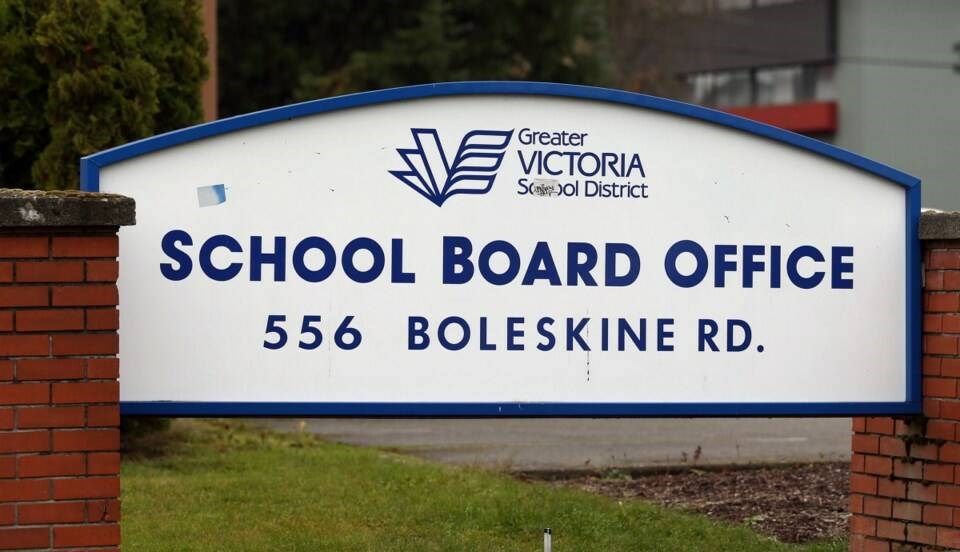It’s a matter of weeks before school trustee elections will be held on Saturday Oct. 15.
The election will determine the nature of school boards that will govern school districts, at least at the level of local policy development, for the next four years.
Candidates’ signs are popping up everywhere. Electoral research has shown that name recognition is maybe the most influential factor in getting elected.
People seek to become school trustees for a variety of reasons — to improve the school system, to gain political experience as a stepping-stone to municipal, regional or even provincial politics, or, in the case of retired teachers or administrators, to continue to be involved with public education.
Then there are single-issue candidates who wish to right some “wrong”.
Most candidates don’t realize that individual trustees do not have the authority to make changes or somehow “fix” the system.
That authority rests solely with the corporate board and is exercised by majority vote. But once that authority is exercised, individual trustees are obligated to support the board’s decision in public — like it or not.
Even so, that authority is best exercised at the policy level, not the administrative level.
“Policy” is generally defined as the process of determining a course to guide and determine present and future decisions.
The school board’s policy book is not a book of rules and regulations; it is a guide book, a framework of a philosophy that hopefully reflects the community’s expectations for its school system.
It then becomes the superintendent’s responsibility to convert policy to action.
Becoming a school trustee is a serious business requiring an oath of office made before a judge, a justice of the peace, a local government corporate officer or the secretary treasurer of the school district.
That oath affirms that as a school trustee, he or she will abide by the School Act and “will not allow any private interest to influence my conduct in public matters.”
That “abide by the School Act” has, in the past, become a stumbling block for trustees who do not agree with provincial government fiscal policies and decisions.
As an example, unlike their municipal and regional counterparts, school boards cannot carry a budget deficit or a budget surplus into the following fiscal year.
Failure or refusal to file a balanced budget with the provincial Ministry of Education can and has resulted in the minister dismissing the board and appointing an “official trustee.”
Despite the wish of a board to “take a stand,” this “sacrifice on principle” process does not usefully serve either the school district or the community that elected the board.
In some ways, however, it could be said — and with good reason — that school trustees in these circumstances find themselves in the painful position of acting as a buffer between provincial government decisions, especially fiscal decisions, and their responsibility to enact the consequences of those decisions at the school district level.
Effective school boards are accountability driven, spending less time on operational issues and more time focused on policies to improve student achievement.
The best school boards understand that student learning is job one.
This presumes that decisions are made about the allocation of resources such as time, money and personnel to that end.
Successful school boards take part in team development and training activities with their superintendents to build shared knowledge, values and commitments for improvement planning.
In my own experience, a major responsibility of a school board is to develop and maintain a collaborative relationship with staff and the community by establishing a strong communications structure to inform and engage stakeholders about what is happening across the district.
Some years ago, I spoke to a seasoned school district communications officer who, very succinctly, explained that responsibility by saying: “the taxpaying public have bought and paid for their school system. We owe them the courtesy of an explanation about what we are doing with their money.”
Above all, it will be the overall responsibility of the newly elected boards to determine how to position the school system to meet the demands of the 21st century.
Major demographic, economic and social forces are shaping the future — we know that, and we also know that quality education is directly linked to accommodating those forces.
Boards must see to it that programs are developed and delivered that will produce learners who are self-reliant individuals in a world where knowledge and information are of high value.
Geoff Johnson is a former superintendent of schools
>>> To comment on this article, write a letter to the editor: [email protected]



.jpg;w=120;h=80;mode=crop)
